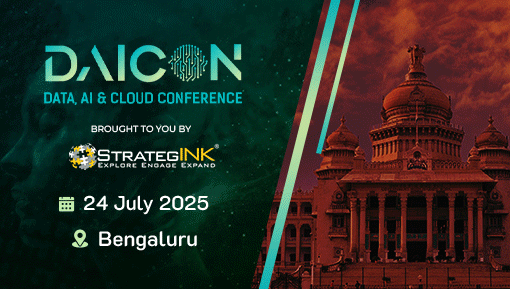
Delve deep into the impact of the pandemic and the new normal on different aspects of the workforce, redefining the FoW and pushing organizations towards employee wellbeing, creating a digital tribe and relooking at their models of engagement
The Future of Work is in constant flux. There are multiple attributes of the same which will virtually change every aspect of the way we work. In the first part of this 3 part series on how the pandemic is redefining the Future of Work, we talked about the acceleration of innovation and the accompanying need for technological advancement and the rise of a hybrid work environment. It focused on how innovation is becoming an enterprise-wide priority for most of the organizations with a strategic move towards hybrid workspaces and adoption of AI/ML/Automation to promote agility in the decision making and leverage human capabilities for high value work.
The second part will exclusively focus on the workforce and how the pandemic is redefining the Future of Work for those who have to carry out the work. There is likely to be a far-reaching impact on how organizations view and manage their workforce. Increasingly, organizations will become more employee-centric, with a greater focus on expectations. At the same time, the skills and competencies desired by the workforce are most likely to change considering the urgency to adopt enterprise-wide adoption. Finally, the ways in which organizations engage with the workforce will drastically change, with a move away from full-time employment for the entire workforce. The following three trends are the top ones which IT leaders and CIOs must acknowledge and work towards to build a workforce ready for the Future of Work.
Focus on Employee Well-being

In the post-pandemic world, organizations will focus a lot on overall employee wellbeing and health. According to a report by McKinsey & Company, “62% of employees globally consider mental health issues to be a top challenge during the Covid-19 crisis”. Owing to such alarming figures, organizations will move towards practices that promote physical, mental and financial security for their employees. While during the pandemic, there was a blurring of the balance between work and life, with work taking precedence over every other aspect, the post-pandemic version of Future of Work will promote healthy work practices to prevent burnout and exhaustion. To look at a more broad view, employers will become the new social safety net for their workforce providing comprehensive insurances, assistance, maternity and paternity benefits, etc.
At the same time, there will be a renewed focus on employee experience that promotes wellbeing. While open dialogue and work flexibility will continue to dominate the practices for creating a pleasant employee experience, managers and leaders will also have to redefine the design and delegation of work as well as roles and responsibilities to ensure engagement and motivation keep increasing. This also involves treating the workforce with more respect and integrity and to acknowledge the contribution of each team member to the organizational vision and goals. Undoubtedly, this will augment the sense of belongingness among employees and ensure that they give in their 100% even if the going gets tough in the face of uncertainty and ambiguity.
Create a Resilient Digital Tribe

Creating a digital tribe will be imperative for organizations to survive and thrive in the redefined Future of Work. Put simply, a digital tribe will essentially be required to lead, manage and spearhead the enterprise-innovation agenda. According to our latest Business Innovation Report, “29% respondents claim that they are progressing towards sustained innovation with centralized teams for innovation.” The Future of Work will only augment this trend even further. As innovation will become a core business strategy, these professionals will work around the year to promote innovation across
variables of products, process and technology, bringing it all together and creating measurable impact. To create a digital tribe, organizations need to focus a lot on upskilling and reskilling with a focus on acquiring digital skills. The idea is to ensure that professionals are able to leverage the new technological tools and opportunities to their and organization’s benefit.
In addition to skills and competencies, a major focus for Future of Work with respect to the workforce should be on augmenting individual resilience. Organizations which have been most successful during the pandemic are those that made conscious efforts to build a workforce that can quickly adapt to changing circumstances. While fostering technical and hard skills is important, a focus on soft skills that promote the workforce to grow holistically is also essential. Such skills of resilience and adaptability will enable the workforce to optimize performance in the face of the changing future ensuring business continuity.
Adopt Dynamic Models of Workforce Collaboration

For a long time, organizations have focused on full-time permanent employment as the only mode of collaborating with the talent in the market. This constrained the organizations to work with professionals of a defined geographical area, limiting the available talent pool. With the pandemic, organizations are increasingly acknowledging that remote work is a possibility. Therefore, the changing nature Future of Work due to the pandemic is likely to see a rise in different models of collaboration. These will range from full-time employment to managed services to freelancers and gig workers.
Organizations will have to rethink different talent relationships and optimize their human resources approach to onboard the best-in-class talent, without any constraints. This will enable organizations to not only leverage the best talent, but also have a flexible scale-up and scale-down approach to ensure optimized productivity.
Essential Guidance for IT Leaders

As we draw the second part of our series on key trends redefining Future of Work in the new normal, there are a few practices and strategies that IT leaders must consider to become industry leaders. To begin with, there must be an influx of the right tools and collaboration with platforms which can promote holistic team wellness across different levels. At the same time, to further facilitate employee belongingness, IT leaders and CIOs must identify the right digital and soft skills required for the success of their organization and invest in the workforce to promote resilience and adaptability. Finally, they should explore different technology avenues and tools to support diverse forms of workforce collaboration to foster efficiency at an enterprise-wide level. In a nutshell, the IT leaders must spearhead the journey of transformation to a digital workforce by equipping them
with the right tools, resources, budgets, etc. to ensure that the technological infrastructure for innovation is complemented by a strong human capital able to leverage the advances of disruption.
The final part of our series will shed light on the last three trends that are likely to redefine Future of Work focused on data, resilience and diversification to promote business continuity for enterprises even in the face of uncertainty and ambiguity. Stay tuned!





